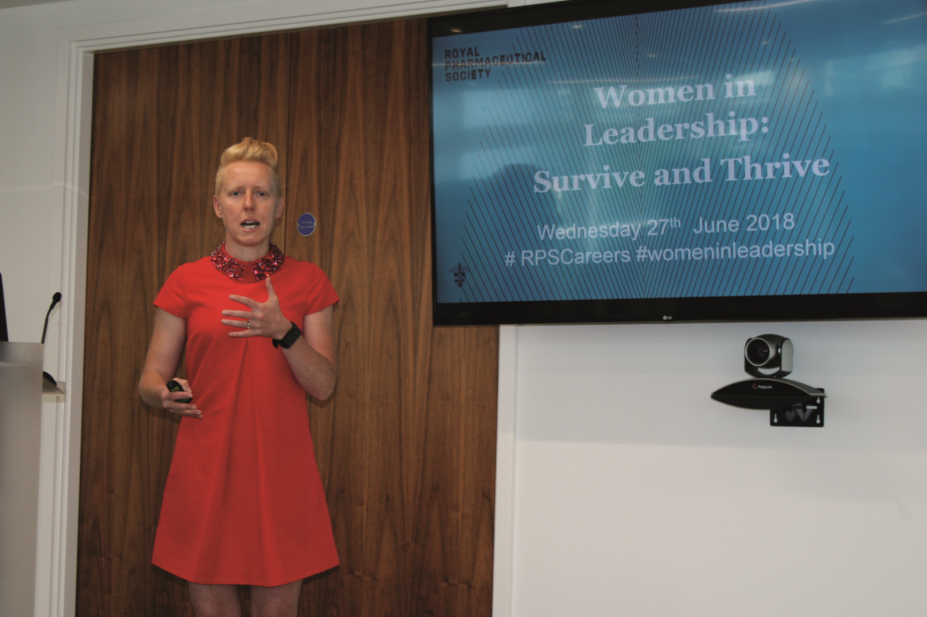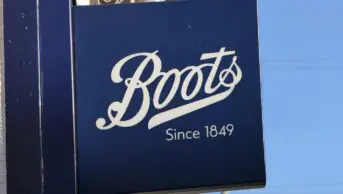
Corrinne Burns / The Pharmaceutical Journal
As a freelance journalist I get invited to events and conferences and launches and lunches all the time, which means I have to be pretty selective about what I go to as I can’t fit everything in. Plus I have to weigh up what I’m going to get out of it story-wise, because as a self-employed, one-woman operation there’s no one to hold the fort while I’m away, and I have to generate stories and content that editors want to buy because that’s how I earn my living.
So when I received an invitation to a Women in Leadership event hosted by the RPS, my first thought was ‘what’s the story?’ but when I saw the theme — Survive and Thrive — and the list of speakers that RPS deputy chief scientist Dr Claire Thompson had got on board, I was too curious to say no.
With women from across pharmacy talking about the issues they face in the workplace, what individuals and organisations can and should do about it, and how we can ensure that female talent reaches its full potential, I realised this was going to be more than just a story-hunt for me — I was actually the target audience for this event.
Unsurprisingly, with speakers including Deborah Evans, Nadia Bukhari, Emma Davies, Tase Oputu, Diane Leicester-Hallam, Dr Catherine Duggan, Clare Howard, Neelam Sharma and Mahendra Patel (the only man) there was a lot of sense talked, and plenty of pearls of wisdom scattered.
Constructive insights abounded about building wide networks, understanding one’s own brand, and finding role models and mentors who are humble enough to tell you the difficulties they had along the way, but it was when we got onto the part about being bold enough to be open and honest that it all started to get really ‘human’. Women shared their experiences of suffering from imposter syndrome, being bullied at work — by male AND female colleagues — as well as having difficult lives at home.
This kind of visible humanity is something that women do really well, but so often we don’t feel comfortable expressing emotion in ‘professional’ settings where any signs of ‘passion’ or ‘feelings’ are seen as weaknesses. On the other hand, let’s not forget this is a problem for men too. Mahendra pointed out that we are all “scarred by inequalities in life” — both professionally and in the wider world — and if we want this to shift it’s going to take “a cultural change to bring about awareness”.
That same evening I went to the inaugural event for Lift As You Climb, a not-for-profit organisation set up to celebrate and encourage women at various stages in their lives and career through networking and cross-sector mentoring.
In a beautiful but sweltering room in Soho’s House of St Barnabas — a social enterprise members’ club and employment academy that mentors and supports homeless people back into work — guest speaker Baroness Margaret McDonagh, Labour peer and co-founder of gender diversity championing organisation The Pipeline, warned of the dangers of the attainment trap, where women think ‘if I’m good and do well, they’ll come find me and promote me’.
Unsurprisingly, it turns out that this isn’t how career progression works. Research from executive recruiter Egon Zehnder found that while there are five keys to being a success — engagement, motivation, determination, insight, and curiosity — you only really need to be great at one of these, and if you had to pick just one they say most successful leaders are curious.
Certainly, the most successful journalists are curious. Every day I ask someone “why?”, “how?”, “who?”, “what?”, “when?” and “where?” whenever I am researching a story, but this day of events led by inspiring and insightful women made me turn those questions back on myself and ask “Why do I do this work? How is it contributing in the wider world? Who can help me? What do I need to do to improve? When am I going to take these steps? And where do I want them to lead me?”
My motto is onwards and upwards, and curiosity is a great driver for that. And on the days when upwards seems too much of a stretch then onwards and sideways will do, but always onwards.



